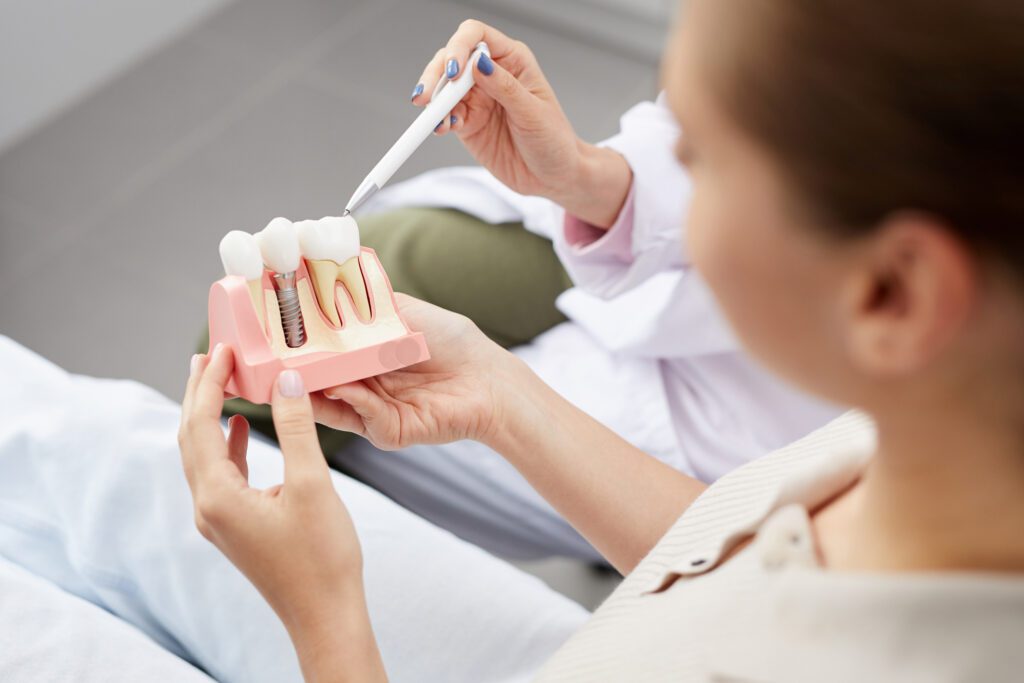Are you missing one or more permanent teeth? Do you want to change the look of your smile? Restore your smile with dental implants. Dental implants are small, cylindrical posts made of durable titanium. We place tooth implants in the jawbone to support restorations like dental crowns, bridges, and dentures.
Treatment with dental implants in our Groesbeck, TX office restores the appearance and function of the smile, making it much easier for patients to eat, speak, and enjoy everyday life. We also provide additional restorative dentistry services to new and existing patients in Groesbeck, Texas.

Dental Implants in Groesbeck, TX
There are many benefits to dental implants. Implants and implant-secured restorations:
- Fill gaps in the smile
- Look and feel natural
- Support healthy teeth and gums
- Restore full bite function
- Address problems like facial sagging
Before implant treatment, we take X-rays to determine which areas of the smile require treatment. We will also plan the exact implant placement from these X-rays. If patients require dental extractions, periodontal therapy, or other treatment before implant surgery, we will perform these treatments to ensure they are healthy. Some patients may also require bone grafting to add enough healthy jaw bone tissue to support the implant.
During implant treatment, we place the titanium implant posts in the jawbone and place a healing cap on top of each implant. Over 3 to 6 months, the implants will fuse with the jaw bone. We will take dental impressions for the prosthesis or restoration that the healed implants will hold in place. Then, once the implants are fully healed, we will attach the permanent crown, bridge, or denture to the implants.
Restore Missing Teeth Today
With routine dental care and a good oral hygiene routine, dental implants can last for many years. Call Groesbeck Family Dental for restorative care with dental implants today at (254) 556-3973. You may also schedule a dental appointment with us on our website.
